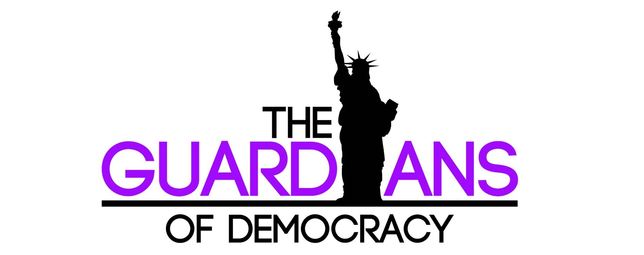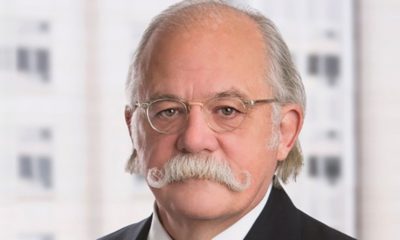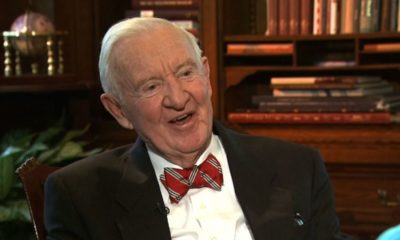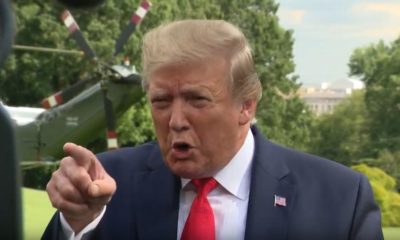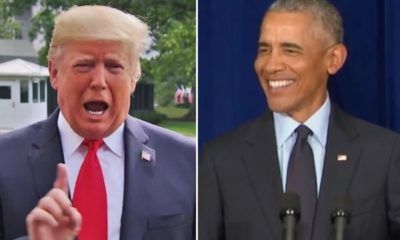DEMOCRACY
In Blow To Trump, Court Upholds Independence Of Consumer Financial Protection Bureau
In a major setback for President Trump and his deregulation efforts, the U.S. Court of Appeals for the District of Columbia ruled Wednesday that language in the Dodd-Frank Act that gives the Consumer Financial Protection Bureau’s (CFPB) independence from Congress is constitutional, citing the precedent set by Humphrey’s Executor v. United States, a 1935 case reaffirming the legality of the Federal Trade Commission’s independent, sole-director structure.
“The Court approved the very means of independence Congress used here: protection of agency leadership from at-will removal by the President. The Court has since reaffirmed and built on that precedent, and Congress has embraced and relied on it in designing independent agencies,” Judge Nina Pillard wrote.
“We follow that precedent here to hold that the parallel provision of the Dodd-Frank Wall Street Reform and Consumer Protection Act shielding the Director of the CFPB from removal without cause is consistent with Article II,” she wrote.
The Hill added:
The full court’s 6-3 vote to overturn the 2016 decision preserves the structure of the CFPB as laid out in Dodd-Frank, handing a victory to the bureau’s supporters.
PHH, a mortgage lender, sued the CFPB in 2015 over a $103 million fine the bureau issued. Their suit challenged not only the legality of the fine, but also the constitutionality of the bureau’s leadership structure.
A D.C. Circuit panel held in 2016 that the CFPB’s structure violated limits on executive power and that the fine was inappropriate on the merits. The Justice Department backed PHH in the case, reversing the department’s position under President Obama.
The court’s Wednesday decision upholds the ruling against the fine, but protects the bureau’s legal foundation.
“It’s a good day for America,” said former CFPB Director Richard Corday, who called it “an important ruling” that “vindicates the independence of the CFPB.”
“There were always going to be ebbs and flows over what I have faith will be the long history of the CFPB,” Cordray said. “The agency will go forward.”
Pilard called PHH’s challenge to the CFPB structure a “wholesale attack on independent agencies.”
“The constitutional distinction PHH proposes between the CFPB’s leadership structure and that of multi-member independent agencies is untenable,” Pillard wrote. “That distinction finds no footing in precedent, historical practice, constitutional principle, or the logic of presidential removal power.”
Liberal groups praised the ruling, calling it “a victory for consumers everywhere.”
“This isn’t just a victory for the Consumer Financial Protection Bureau, this is a victory for consumers everywhere,” said Karl Frisch, executive director of progressive nonprofit Allied Progress. “While this case is an important victory, the fight continues to protect consumers and defend the mission of the CFPB to hold big banks, predatory lenders, and other financial bad actors accountable.”
However, banking and financial services industry trade groups criticized the ruling, calling for changes despite the decision.
“While the court ruled the CFPB’s governing structure was not unconstitutional, it does not mean the current structure is appropriate for the Bureau’s long-term credibility,” said Richard Hunt, president of the Consumer Bankers of America. “Congress should create a bipartisan commission at the CFPB, in place of a sole director, to uphold the Bureau’s mission of consumer protection.”
“Our view on that has not changed. We will continue to push for the bureau to exempt credit unions from current and future rulemakings,” said Dan Berger, president of the National Association of Federally Insured Credit Unions.
